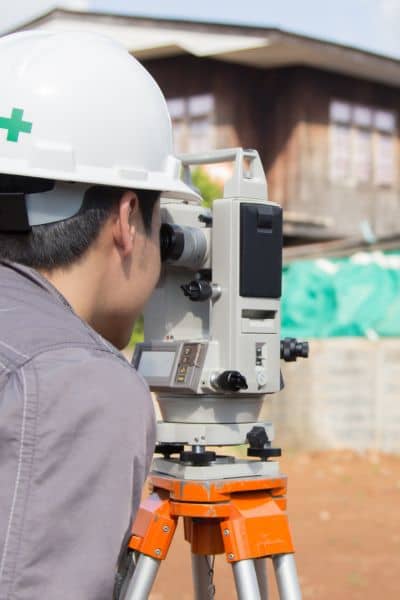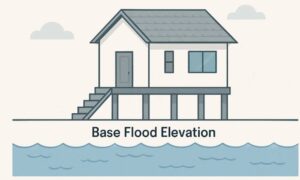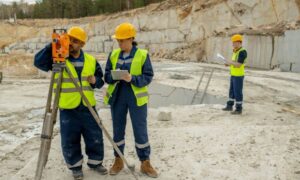
If you’ve owned a home for a while, there’s a good chance you’ve received a surprise offer to buy your property. Maybe it came in the mail. Maybe it was a text message from someone you’ve never heard of. It might’ve even sounded tempting—quick cash, no hassle, close fast. But before you say yes, stop and ask yourself: Do I really know where my property begins and ends? If not, you need a property line survey.
A property line survey helps homeowners know the exact boundaries of their land. That may sound simple, but it’s more important than most people realize—especially when strangers want to buy your land.
Why Are People Suddenly Offering to Buy My Property?
In recent years, more homeowners have reported getting unexpected offers from investors, builders, or even individuals. Some of these people are legit. Others? Not so much.
These buyers often send offers to hundreds of people at once. They use public data, zoning maps, or even guesswork to target homes they think they can flip or develop. Sometimes, they’re just hoping to find someone who’s unaware of how valuable their land really is.
But here’s the scary part: if you don’t have a recent property line survey, you might not even know exactly what you’re selling. That can lead to big regrets later.
You Can’t Trust Fences or Old Maps
A lot of homeowners assume their fence shows the edge of their property. Others rely on old maps or what their neighbor told them when they moved in. Unfortunately, that’s not enough.
In a city like Minneapolis, where homes are packed closely together and many properties are over 100 years old, boundaries can get messy. Fences might have been built in the wrong spot. Past owners might’ve made deals that never got recorded properly. And some corners or boundary markers may be missing altogether.
Without a property line survey, you’re guessing—and when it comes to real estate, guessing can cost you thousands.
The Risk of Saying Yes Without Knowing the Facts
Imagine this: you sell a strip of land behind your garage to a buyer who says it’s “unused space.” You take the deal and pocket the money. Later, you learn that strip actually gave you legal access to your garage—or worse, that it included part of your backyard.
Now you’re stuck. You can’t get that land back, and your property value might have dropped.
These things happen more often than you’d think. Some buyers rely on your lack of information. They assume you won’t take time to check the details. They might even show you vague drawings that look official but aren’t.
A property survey changes everything. It gives you a clear, legal document showing where your land starts and ends. No guessing. No confusion. No surprises.
What Is a Property Line Survey, Really?

Let’s break it down. A property line survey is done by a licensed land surveyor. They come to your property with special tools—like GPS units, measuring wheels, and sometimes even drones—to figure out the exact size and shape of your land.
Once they’re done, they give you a detailed drawing or map. It shows your lot boundaries, corners, and any features near the edges—like fences, buildings, or driveways. If there are any problems (like your neighbor’s shed crossing the line), they’ll point that out too.
It’s not just a drawing. It’s a legal record. That means if any issues come up—during a sale, a construction project, or a boundary dispute—you’ve got real proof on your side.
Minneapolis Is a Hotspot for Boundary Confusion
Because Minneapolis has so many older neighborhoods, boundary confusion is a real problem here. Some lots were divided decades ago, before modern tools existed. Others were split in ways that don’t match the city’s current records.
Even city maps (called GIS maps) can be off by several feet. And in tightly packed neighborhoods, a few feet can make a huge difference.
This is especially risky when you’re dealing with buyers who might be trying to take advantage of this confusion. Without a property line survey, you could accidentally give away more land than you meant to—or agree to a deal that isn’t in your best interest.
A Survey Gives You Power at the Negotiating Table
Let’s say someone makes you an offer. Instead of just reacting, you take a smarter step: you get a property line survey. Now you know exactly what you own. You can decide whether the offer makes sense—or if the buyer is trying to take advantage of you.
You might even discover that your land is worth more than you thought. Or that part of it includes an alley or easement that affects its value. These are things that can’t be seen with the naked eye—but they matter in every deal.
When you have solid information, you’re in control. You can ask the right questions, push back on false claims, and make a decision based on facts—not pressure.
What Should You Do If You Get an Offer?
If someone reaches out to buy your land, don’t panic. And definitely don’t say yes right away. Instead:
- Take a breath.
- Ask for details about what exactly they want to buy.
- Tell them you’ll get back to them after reviewing your records.
- Then call a licensed land surveyor and schedule a property line survey.
This small step protects your land, your investment, and your peace of mind.
Final Thoughts:
Owning a home is one of the biggest investments you’ll ever make. When someone comes along with a flashy offer, it’s easy to get excited—or overwhelmed. But before you make any decisions, take the time to know what’s really yours.
A property line survey might seem like just another task, but it’s actually your best tool for protecting your property and making smart choices.
Because in the end, it’s not just about selling land—it’s about knowing where your land ends, and your peace of mind begins.





